
Tracy Lawrence
A native of East Texas, Tracy Lawrence has country music bred into his bones. Tracy Lee Lawrence was born into a large family in Deep East Texas in Atlanta in 1968. The family moved to Arkansas during his boyhood, but Tracy learned to play guitar and sang in the Methodist church choir. His mother hoped he would become a minister, but Tracy longed for a career in music.
His "crazy music dream" brought him into clubs, performing from the age of 15. Within two years he joined a Honky Tonk Band. In 1986 he enrolled in Southern Arkansas University, studying Mass Communications for two years. Tracy began singing for another band, but when that group broke up, he moved to Nashville. He performed impressively at several Nashville bars and nightclubs and won local talent competitions. Within just seven months he signed with the Nashville Division of Atlantic Records.
His debut album was Sticks and Stones. But prior to its release, Tracy and a young lady he was escorting were attacked by three armed men who were intending robbery and sexual assault. Tracy courageously resisted the attack, allowing his companion to escape. But Tracy was shot four times, causing the release of his album to be delayed while he recovered from surgery.
Sticks and Stones finally was released late in 1991, and four singles, including the title song, charted on Billboard's Hot Country Songs. Sticks and Stones was certified platinum by the Recording Industry of America and in 1992 Billboard Magazine named Tracy Lawrence Top New Male Vocalist.
Tracy's second album, Alibis, was released in 1993 and was certified double platinum for the shipment of two million copies. Four singles from the album soared to the Number One position on the Hot Country Charts between early 1993 and early 1994. Tracy co-wrote several of the album's songs.
Tracy's 1994 album, I see It Now, also was certified platinum, while the title track rose to Number Two on the Country charts. "As Any Fool Can See" also went to Numer Two and "Texas Tornado" became a Number One hit, while "If the World Had a Front Porch" also reached Number Two.
In 1995 Tracy released Tracy Lawrence Live, which was compiled from 40 different live shows. His fourth studio album, Time Marches On, released in 1996, became a double platinum album by 2000. "Time Marches On" reached Number One on Hot Country Songs and was nominated for Single of the Year.
Tracy contined to record studio albums at a steady pace, numbering 18 by 2022. In addition Tracy released two Christmas albums, All Wrapped Up in Christmas (2007) and Frozen Time (2018). The Rock (2007), a Christian country album, received strong reviews, including Todd Shelton's assessment that Tracy "sounds as comfortable singing songs about the Lord as he does straight country."
There have been four compilations: Tracy Lawrence Live (1995); The Best of Tracy Lawrence (1998); Then and Now, The Hits Collection (2005); and The Very Best of Tracy Lawrence (2007). Eight of his titles have reached Number One on Billboard, most recently "Find Out Who Your Friends Are" in 2007, which was named Vocal Event of the Year by the CMA and the Adademy of Country Music Awards in 2008.
Tracy and his wife Becca married in 2000, and they are the parents of two daughters, Skylar and Mary. Tracy continues to pursue a busy recording and performing career, and he is a welcome addition to the Texas Country Music Hall of Fame.
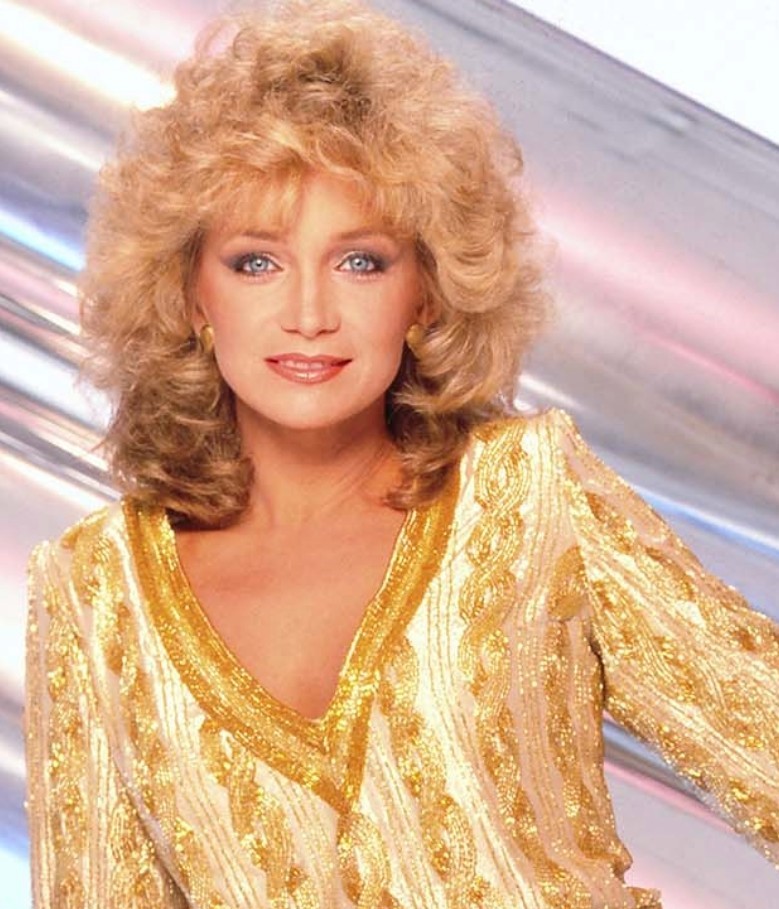
Barbara Mandrell
During the 1970s I attended a concert at the State Fair Auditorium in Shreveport. The headliners were the Statler Brothers, who were at the height of their popularity, and who presented a delightful musical and comedy show. But the lead-in act also was spectacular: Barbara Mandrell and her band, The Do-Rites.
Barbara Mandrell was only in her 20s, but I had played a number of her recordings as a DJ over KGAS Radio. I knew that she was a lovely young woman who sang energetically and who played a number of instruments. But when her show opened I had no idea what a brilliant performance was about to explode across the audience.
Barbara immediately captivated the audience, singing one powerful number after another in her husky voice. She darted from one instrument after another, playing memorably on the pedal steel guitar before seizing a banjo, then a saxophone, an accordian, a Dobro, a bass, a mandolin, and a guitar. She commanded every instrument, and played and sang with frenetic energy. Her vocals ranged from country to R&B to gospel to country pop to soul.
It was a stunning hour. Audience members were left drained, and I could only imagine how Barbara felt after giving us such a bravura performance. She already was recording albums, and no one was surprised when an astonishing number of awards and accolades was presented to her.
Barbara Ann Mandrell was born in Houston, on Christmas Day in 1948, the oldest of three pretty and talented daughters of Irby and Mary Ellen Mandrell. Barbara's mother taught her music, and her father opened a music store when the family moved to California. The Mandrell Family Band was formed, and Barbara played saxophone in her school marching band. She became a regular on Town Hall Party, a syndicated TV show hosted by Tex Ritter. During summer breaks, Barbara performed in Las Vegas, and because she was a minor, she roomed with Patsy Cline. During this period the Mandrell Family toured military bases in the region.
One of the members of the Mandrell Family Band was Ken Dudney. Ken and Barbara married in 1967, had three children, and Barbara quit performing to be a mother and housewife. But while visiting her parents in Nashville, Barbara attended a performance of the Grand Ole Opry, and she announced a sudden revelation: "I wasn't cut out to be a member of the audience."
She soon signed a recording contract, and in 1970 she was named Most Promising New Female Artist by the Academy of Country Music. Barbara charted with such songs as "Tonight My Baby's Coming Home," "After Closing Time," "Sleeping Single in a Double Bed," "Woman to Woman," "If Loving You is Wrong I Don't Want to be Right," and "I Was Country When Country Wasn't Cool." She won Grammy Awards for gospel recordings.
There was an astonishing parade of awards: CMT Most Promising Female Vocalist (1978); Entertainer of the Year (1980); Top Female Vocalist (1981); Favorite Country Female Artist (1981, 1982, 1983, 1984, 1985, 1987); CMT Female Artist of the Year (1979, 1981, 1982), CMT Instrumentalist of the Year (1982); CMT Living Legend of the Year (1985); Minnie Pearl Award (1991). She became a member of the Grand Ole Opry in 1972 and of the Southern Gospel Association in 2009.
In 1980-81 and 1981-82 she headlined a television variety show, Barbara Mandrell and the Mandrell SistersI. Enormously popular, the show attracted a weekly audience of 40 million viewers, but Barbara's pace was taking a toll on her voice. On medical advice, she stepped away from the show after two seasons, although she made guest appearances on other shows and at the Grand Ole Opry. (By Bill O'Neal)
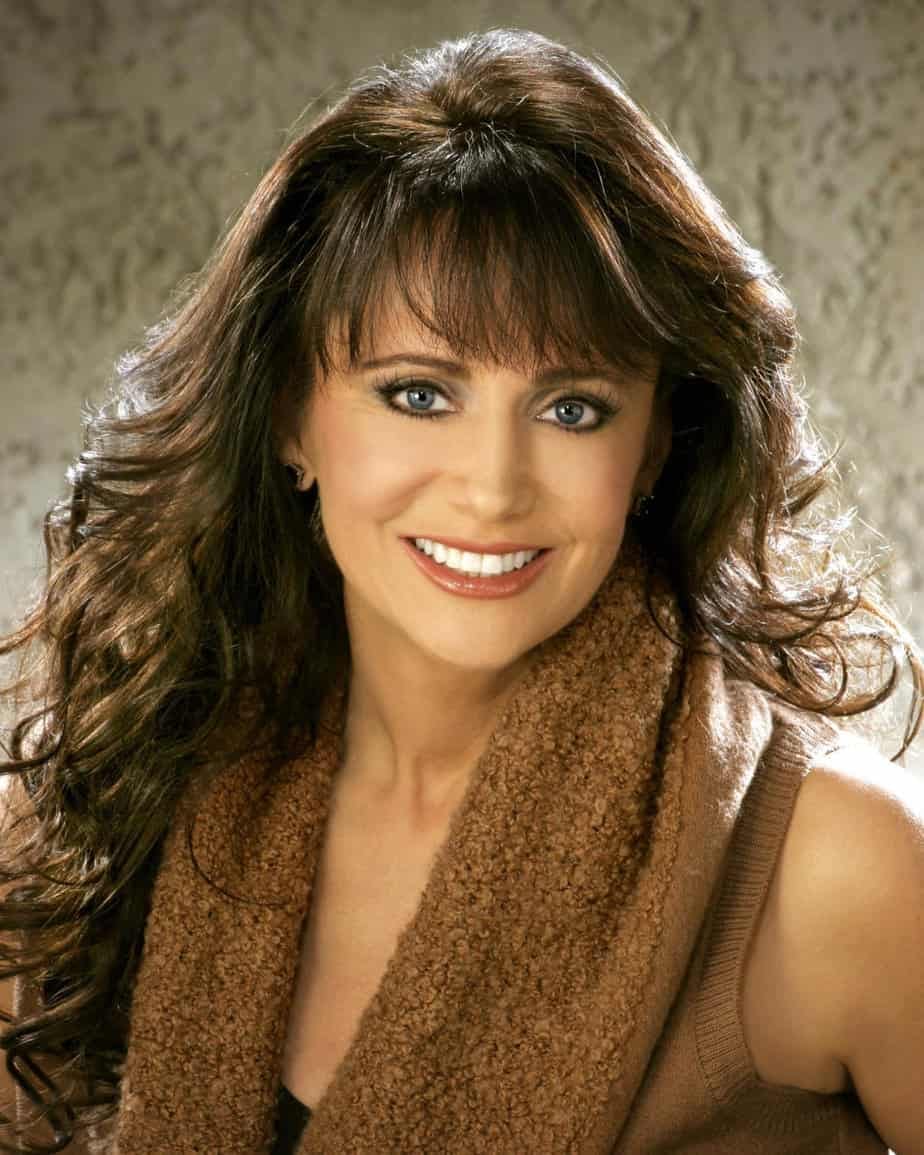
Louise Mandrell
"Yellow Rose of Texas" Texas Legislature, 1981
"Official Sweetheart of Tennessee"
Born in 1954 to a musical family in Corpus Christi, Texas, Thelma Louise Mandrell was fascinated by instruments. Louise learned to play the fiddle, clarinet, drums, saxophone, accordian, keyboard, guitar and bass. She also sang, and when her parents - Irby and Mary Ellen Mandrell - organized the Mandrell Family Band, Louise was a featured member. During the 1970s Barbara formed a band, The Do Rites, and Louise became a member, focusing on guitar and bass.
Louise began to record her own singles, and she scored her first hit with "Reunited," which charted at Number 13. In 1980-81 and 1981-82, Louise and younger sister Irlene co-starred wth Barbara in the massive hit variety show Barbara Mandrell and the Mandrell Sisters. For two seasons the musical comedy hour attracted as many as 40 million audience members each week.
By 1981 Louise had signed with RCA Records, and her singles began to chart in the Top 40. In 1983 she enjoyed two Top Ten hits, "Save Me" and "Too Hot to Sleep," as well as a Top 15, "Runaway Heart." RCA released her first music video in 1985, "Some Girls Have All the Luck."
During this period 50 Tennessee city managers named Louise the official "Sweetheart of Tennessee," and the Texas State Legislature annointed her 1981's "Yellow Rose of Texas."
From 1992 to 1994 Louise and Kenny Rogers headlined the 4,000-seat Grand Palace Theater in Branson, Missouri. On occasion Louise shared the stage with Waylon Jennings, Roger Miller, and other stars.
In September 1997, Louise opened The Louise Mandrell Theater in Pigeon Forge, Tennessee, in the heart of the Smoky Mountains. Louise starred in every performance, singing multiple styles of music, including Southern Gospel, and her theater became the best-attended in the Smoky Mountains. Louise sold her theater in 2005.
Louise co-authored The Mandrell Family Album in 1983, and a series of children's books followed. She appeared regularly on television on The Today Show, 700 Club, Austin City Limits, Hee Haw, The Tonight Show, Another World, Nashville on the Road, Grand Ole Opry, Branson Country Christmas, Ralph Emery, Barbara Mandrell's Country, Do Rite Women, Oprah Winfrey Show, among many others.
During the Christmas and New Year seasons Louise performed "Joy to the World," a dinner show which ran for one month. "Louise Mandrell's Christmas Dinner Party" was held during the 2011 season.
Louise performed live at the Ryman Auditorium in Nashville in 2019. On July 30, 2022, Louise and Irlene were part of a special Opry show celebrating the 50th anniversary of Barbara Mandrell as an Opry member. Three more times during 2022 and 2023 Louise was featured in the Country Classics segment of the Opry stage.

Irlene Mandrell
Irlene Mandrell is the embodiment of versatility. She has an abundance of musical talent. She is beautiful, and as a young woman she began a modeling career. She was one of the stars of an enormously popular television series, and later she made numerous appearances on many other TV shows. Proficient with firearms, Irlene is an accomplished hunter, and other sporting interests include that of race car driver. She is a celebrity spokeswoman for a number of companies, and she always is a delightful presence on-screen and on-stage.
Ellen Irlene Mandrell was born in 1956 in Corpus Christi, Texas. Her parents both were musicians, and her father Irby - a naval veteran of World War II, a police officer and a skilled businessman - directed the early careers of his three daughters.
As a young lady Irlene modeled for CoverGirl, and later she worked as a model for Lanna Skin Care products, Nine West shoes, and other products. She later served as a spokesperson for a wide range of products, including hunting items.
After Barbara Mandrell organized her band, The Do Rites, Irlene joined in as drummer. Becoming one of the best-known female drummers in the music industry, Irlene also played mandolin and vibraphone.
In 1980 Irlene participated as a co-star in Barbara Mandrell and the Mandrell Sisters, a weekly television variety show which regularly attracted 40 million viewers. Gifted as a comedy relief, Irlene twice was presented awards for Comedy Act of the Year by Music City News. Although the show ended after two seasons, Irlene became a "Hee Haw Honey" with the cast of Hee Haw, delighting her fans for eight seasons. She also appeared regularly on other shows: two episodes of Love Boat; The Johnny Carson Tonight Show; the Oprah Winfrey Show; The Mike Douglas Show; celebrity panelist on Password Plus and The Match Game and numerous game shows such as Family Feud. Irlene also appeared on Town Hall Party, the long-running country music show hosted and headlined by Tex Ritter, charter member of the Texas Country Music Hall of Fame.
An enthusiastic hunter, Irlene is an expert with handguns, shotguns, rifles, and crossbows. She has hunted throughout North America and Mexico, and has ventured into South America and Afrida on hunting trips. The Irlene Mandrell Celebrity Shoot raises a large amount of money for Wish Upon a Star and the Boy Scouts. Irlene appears on outdoor shows, and was featured on Irlene Mandrell Straight Shooter on PBS's Tennessee Wildside.
Irlene has made television films such as The Misadventure of Amy Everheart, A Belle for Christmas, and Every Other Holiday. In 2017 she released a patriotic album, Thanks to You, dedicated to military and first responders.

Roy Orbison
Roy Orbison was an immensely gifted songwriter, vocalist and guitarist. His career was studded with honors and musical stardom, but during his lifetime he suffered tragedies, ill health, and an early death.
Born in Vernon, Texas in 1936, Roy was the son of an oil-field driller. From the age of four, an eye difficulty required him to wear dark, thick eyeglasses. As a youngster he began to dye his light hair black, and during school recesses he regularly sat alone and practiced his guitar.
Growing up in Fort Worth, Vernon, and Wink in West Texas, Roy was influenced by country and western swing music, especially the plaintive singing of Lefty Frizzell, as well as Hank Williams, Bob Wills, and Jimmie Rodgers. He also was attracted to Tex-Mex music, Cajun sounds, and rhythm and blues.
Insired by multiple musical influences, Orbison began to create a unique style. Roy sang on a local radio program when he was eight, and he later hosted the show. At thirteen he organized the Wink Westerners, who played at area events, a morning radio show, and school dances, while winning a talent contest.
In 1954 Orbison enrolled in North Texas State College. He formed a new band, the Teen Kings, and launched efforts to record in studios, including the famous Sun Records label. Moving to the Nashville area with his wife, Claudette, and the first of their three sons, Orbison advanced his career while earning a living at Acuff-Rose Music.
By the 1960s Orbison had developed a complex recording style, and he sang with a three-octave vocal scale. From 1959-1963 Orbison was the top-selling American artist and one of the world's leading names in the music industry, despite a quiet and self-effacing personality.
Rolling Stone rated Orbison Number 37 on their list of the "Greatest Artists of All Time" and Number 13 on their "100 Greatest Singers of All Time." He recorded with such artists as Johnny Cash, Carl Perkins, Jerry Lee Lewis, Rick Nelson and K.D. Lang. Elvis Presley said that Orbison was "the greatest singer in the world." Roy's hit songs included "Oh, Pretty Woman," "Only the Lonely," "It's Over," and "Crying."
Sadly, in 1966 Roy's wife, Claudette, was killed while riding a motorcycle. Two years later his two oldest sons perished in a house fire. Orbison began to suffer health problems which led to heart surgery, but he contined a heavy smoking habit.
During the 1980s he became part of an all-star supergroup, the Traveling Wilburys, alongside Bob Dylan, George Harrison, Tom Petty, and Jeff Lynn. Roy labeled himself "Lefty Wilbury," in homage to Lefty Frizzell. Country music fans celebrated a duet between Roy and Emmylou Harris, "That Lovin' You Feeling Again," which won a Grammy Award. There were five other Grammys, including a Life Achievement Award.
In 1988 Orbison died of a heart attack at the age of 52, leaving his second wife Barbara and three children. He was voted into the Rock and Roll Hall of Fame in 1987, the Nashville Songwriters Hall of Fame (also in 1987), the Songwriters Hall of Fame (1989), America's Pop Music Hall of Fame (2014), a Step on the Hollywood Hall of Fame (2010), the Memphis Music Hall of Fame (2017), and now the Texas Country Music Hall of Fame.


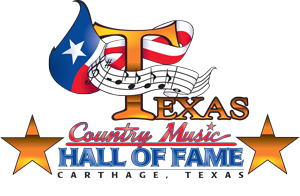





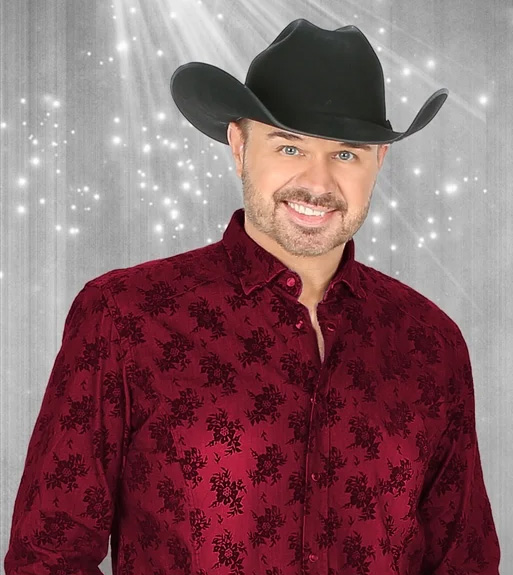 Clay Cooper
Clay Cooper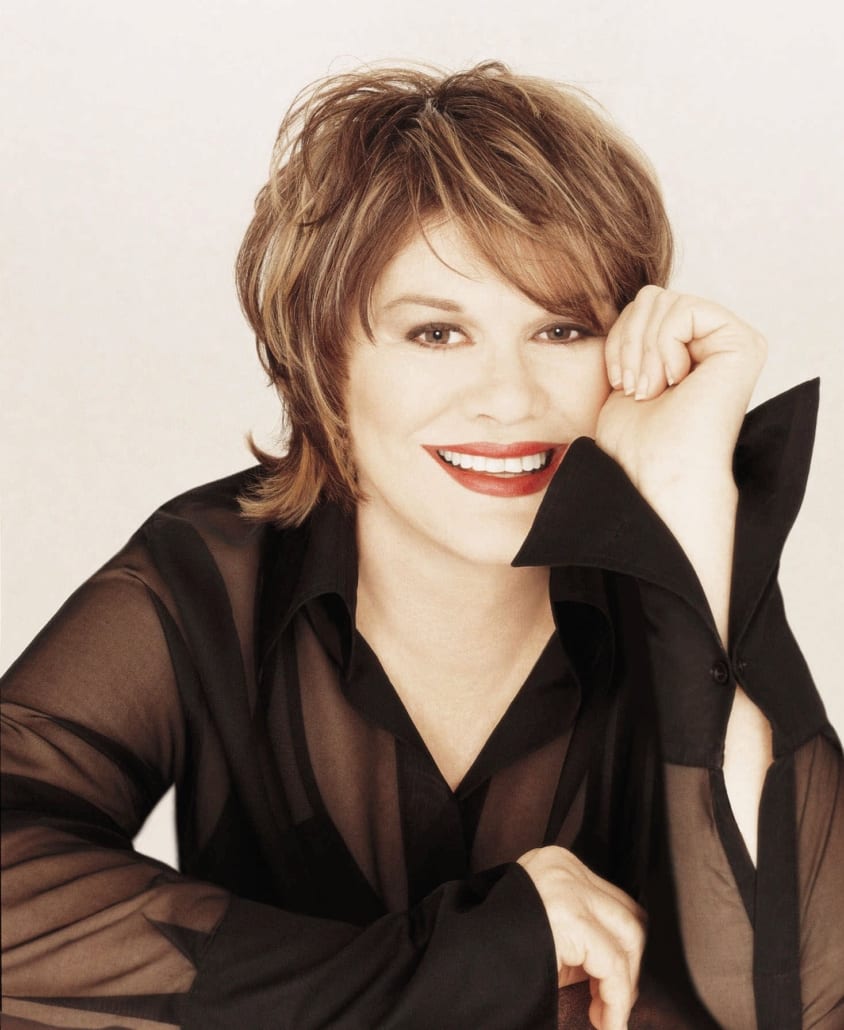 K.T. Oslin
K.T. Oslin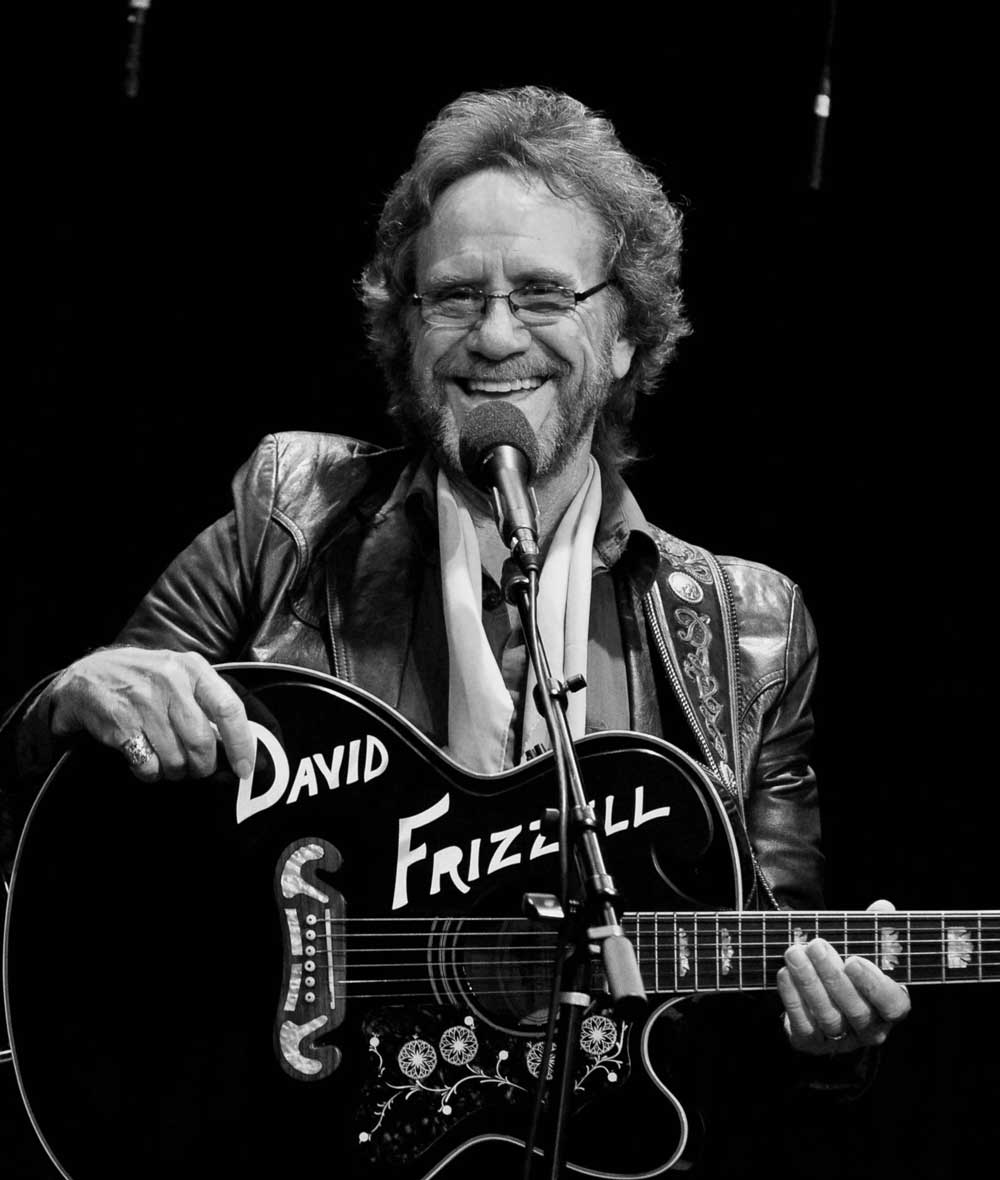
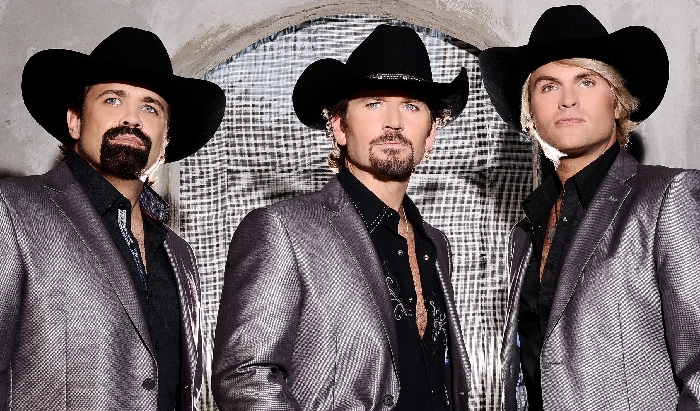
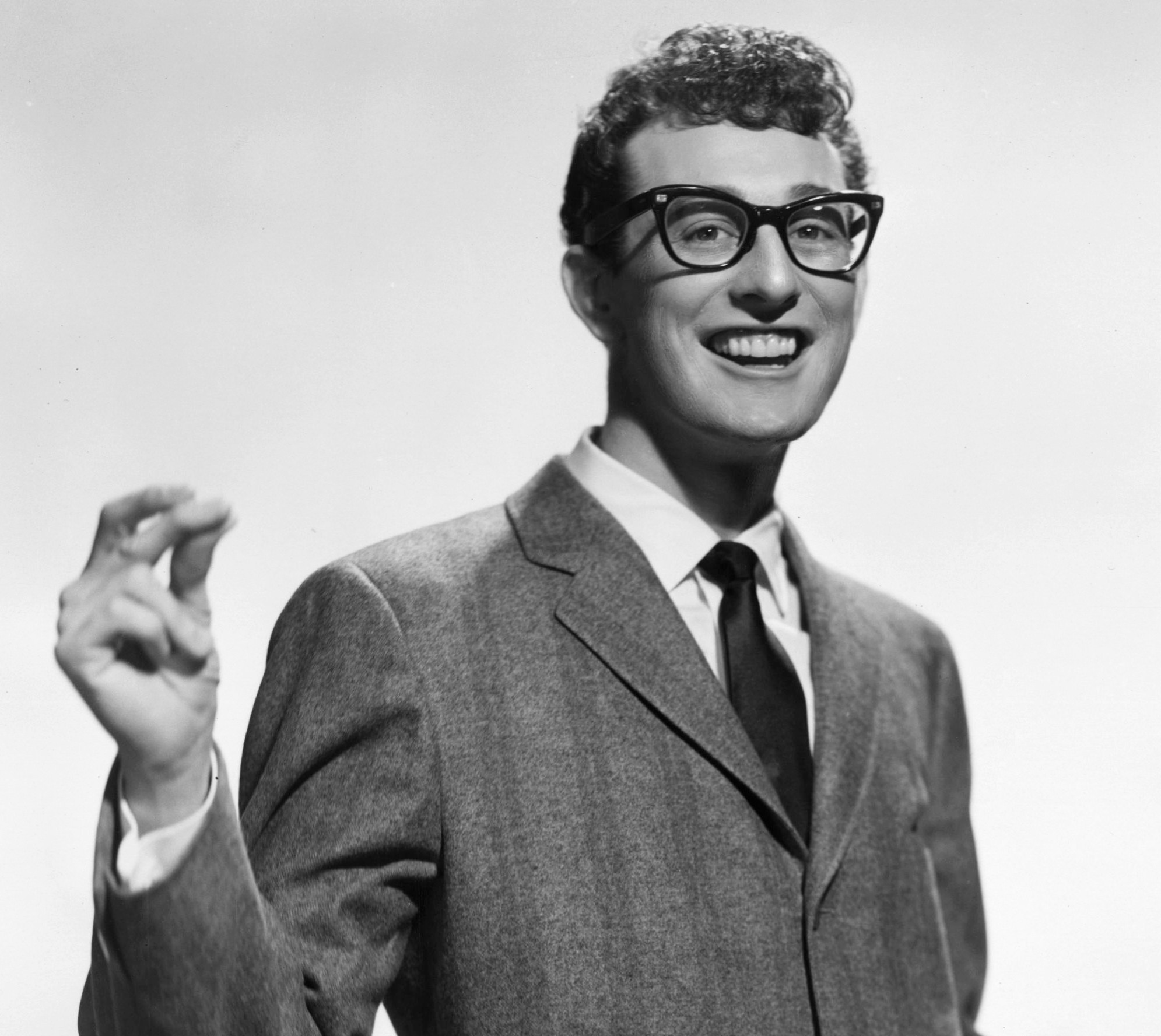
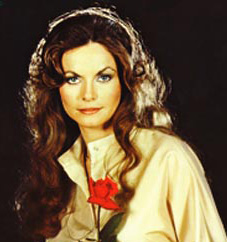
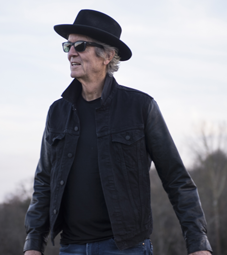 Rodney Crowell
Rodney Crowell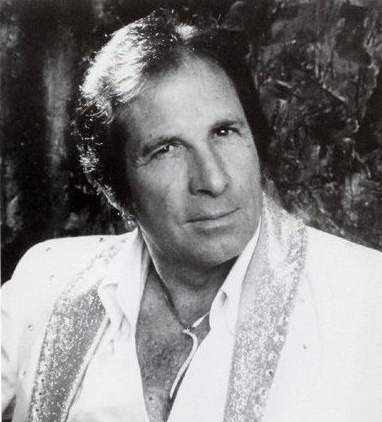
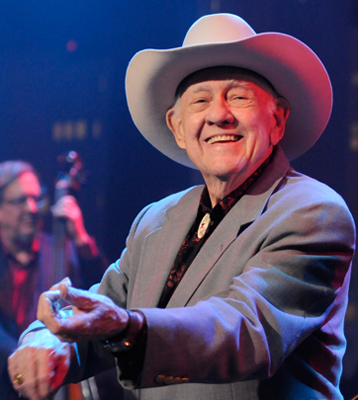
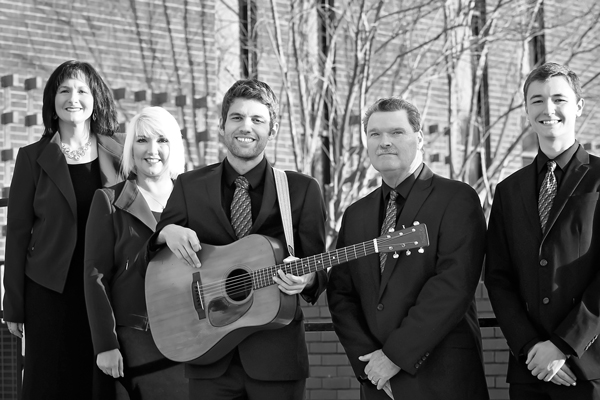 The original Chck Wagon Gang began putting it all out there over 80 years ago in November 1936. They made their first recordings in San Antonio for Columbia Records. When they found the majority of their mail requested Gospel numbers, they gradually changed from Country-Western to Gospel music. For years they have toured across the length and breadth of the USA and played to vast crowds at major venues such as the Hollywood Bowl in Los Angeles, Carnegie Hall in New York, and also on Nashville's Grand Ole Opry. They also appeared in films and at one time hosted a television show called Gospel Round Up. Their beautiful four-part harmony singing to simple guitar accompaniement made them internationally known. The current group still tours all over the world. The owner, manager and also singer, Shaye Smith, is the granddaughter of the Gang's original alto, Anna Carter Gordon Davis and Howard Davis, their guitarist.
The original Chck Wagon Gang began putting it all out there over 80 years ago in November 1936. They made their first recordings in San Antonio for Columbia Records. When they found the majority of their mail requested Gospel numbers, they gradually changed from Country-Western to Gospel music. For years they have toured across the length and breadth of the USA and played to vast crowds at major venues such as the Hollywood Bowl in Los Angeles, Carnegie Hall in New York, and also on Nashville's Grand Ole Opry. They also appeared in films and at one time hosted a television show called Gospel Round Up. Their beautiful four-part harmony singing to simple guitar accompaniement made them internationally known. The current group still tours all over the world. The owner, manager and also singer, Shaye Smith, is the granddaughter of the Gang's original alto, Anna Carter Gordon Davis and Howard Davis, their guitarist.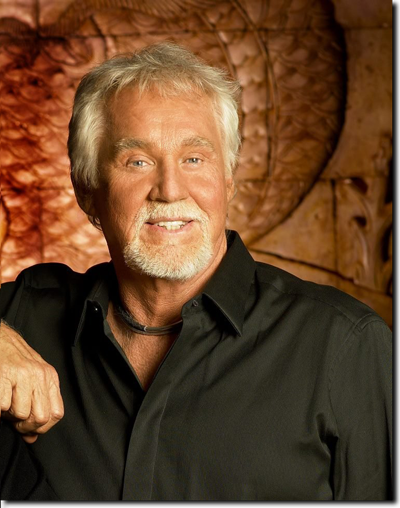
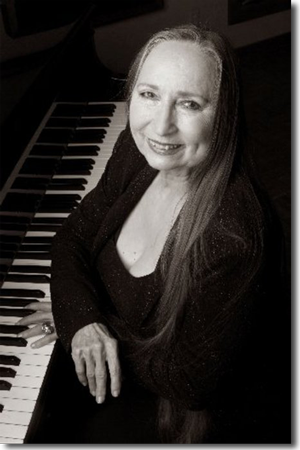 Bobbie Lee Nelson - Born in Abbott, Texas in 1931, Bobbie Lee Nelson, is an American pianist and singer. She is the sister of previous TCMHOF Inductee Willie Nelson, and is a member of his band Willie Nelson and Family. In 2008 Bobbie released her debut solo album Audiobiography and 7 years later recorded the album December Day with brother Willie.
Bobbie Lee Nelson - Born in Abbott, Texas in 1931, Bobbie Lee Nelson, is an American pianist and singer. She is the sister of previous TCMHOF Inductee Willie Nelson, and is a member of his band Willie Nelson and Family. In 2008 Bobbie released her debut solo album Audiobiography and 7 years later recorded the album December Day with brother Willie.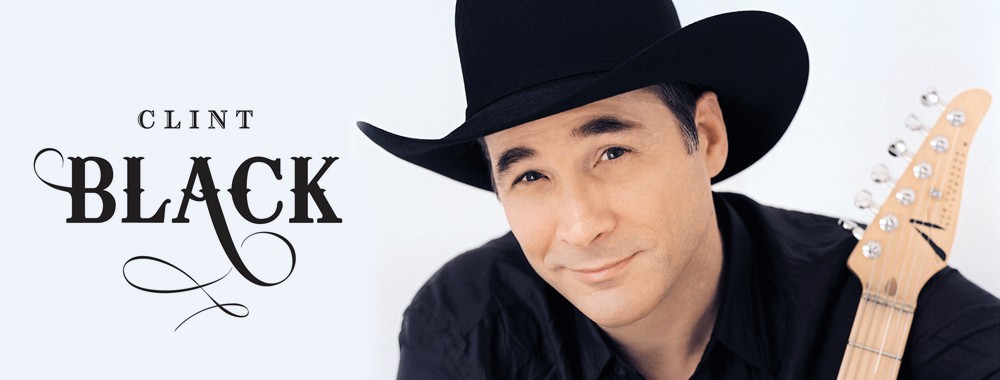
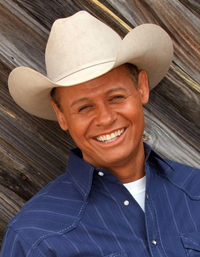 Neal McCoy
Neal McCoy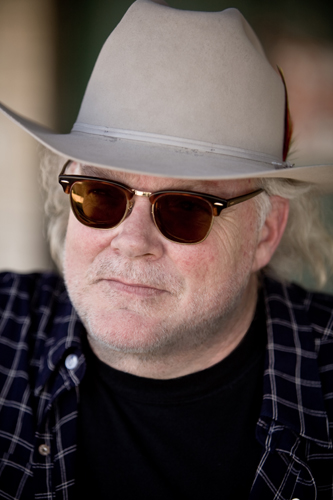 Dallas Wayne
Dallas Wayne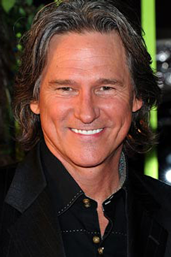 Billy Dean
Billy Dean Barbara Fairchild
Barbara Fairchild Holly Tucker
Holly Tucker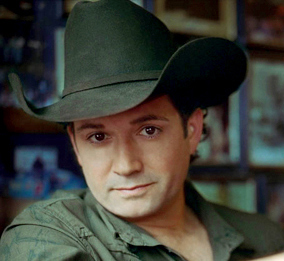 "I'd never been in a studio until I cut a record and got a record deal," reflected Tracy Byrd about the course of his career. "I was a live performer. That's what I am and where I came from and what I still love to do."
"I'd never been in a studio until I cut a record and got a record deal," reflected Tracy Byrd about the course of his career. "I was a live performer. That's what I am and where I came from and what I still love to do." A decade ago Dallas Wayne, noted DJ and veteran C&W performer, brought his talents to KHYI 95.3 FM in Dallas, Texas. In 2006 the Academy of Western artists presented him with a Will Rogers Award for Classic Country Major Market DJ of the Year.
A decade ago Dallas Wayne, noted DJ and veteran C&W performer, brought his talents to KHYI 95.3 FM in Dallas, Texas. In 2006 the Academy of Western artists presented him with a Will Rogers Award for Classic Country Major Market DJ of the Year.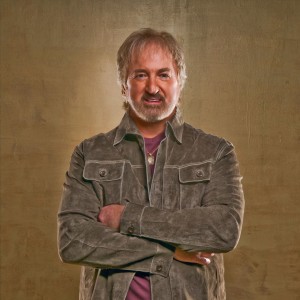 Elvira, Y'All Come Back Salon, Bobbie Sue, You're the One, Fancy Free, American Made - These and other sensational hits established the Oak Ridge Boys as one of the most famous and accomplished groups in the history of Country Music. This notable group had its origin in 1945 at Oak Ridge, Tennessee. Oak Ridge was a key location for research and development of the atomic bomb during World War II. There were 75,000 men and women at Oak Ridge working on this top secret "Manhattan Project," and movies and live entertainment were brought into this confined community.
Elvira, Y'All Come Back Salon, Bobbie Sue, You're the One, Fancy Free, American Made - These and other sensational hits established the Oak Ridge Boys as one of the most famous and accomplished groups in the history of Country Music. This notable group had its origin in 1945 at Oak Ridge, Tennessee. Oak Ridge was a key location for research and development of the atomic bomb during World War II. There were 75,000 men and women at Oak Ridge working on this top secret "Manhattan Project," and movies and live entertainment were brought into this confined community.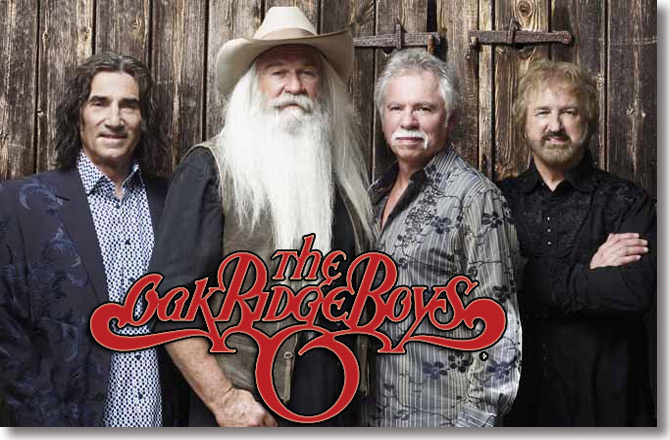
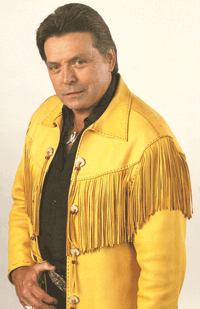 "Room Full of Roses," Stand By Me," "City Lights," "She's Pulling Me Back Again," "Lonely Nights," "You've Really Got a Hold on Me," "Don't the Girls All Get Prettier At Closing Time." All of these memorable songs and many more were No. 1 hits for Mickey Gilley. During a 10-year period, 1974-1983, Gilley recorded 17 No. 1 releases, including six in a row in 1980 and 1981. Several of these hits crossed over to the pop charts, making Mickey a leader of the "Countrypolitan" genre. And throughout this period of superstardom, the award-winning pianist-singer presided over "The World's Biggest Honky Tonk," Gilley's, in Pasadena, Texas. Mickey Leroy Gilley was born on March 9, 1936, in Natchez, Mississippi. The family home was across the Mississippi River in Ferriday, Louisiana. Mickey grew up playing the piano with his cousins Jerry Lee Lewis and Jimmy Swaggart. The three cousins played boogie woogie in high school and gospel music at Ferriday's Assembly of God Church. At the age of 17 Mickey left school to move to Houston and find construction work. But when his cousin, Jerry Lee Lewis, scored a hit with his first recording, "Crazy Arms," Mickey decided to pursue a music career. He made a few recordings, played clubs in Louisiana and Mississippi, and returned to Houston for construction jobs.
"Room Full of Roses," Stand By Me," "City Lights," "She's Pulling Me Back Again," "Lonely Nights," "You've Really Got a Hold on Me," "Don't the Girls All Get Prettier At Closing Time." All of these memorable songs and many more were No. 1 hits for Mickey Gilley. During a 10-year period, 1974-1983, Gilley recorded 17 No. 1 releases, including six in a row in 1980 and 1981. Several of these hits crossed over to the pop charts, making Mickey a leader of the "Countrypolitan" genre. And throughout this period of superstardom, the award-winning pianist-singer presided over "The World's Biggest Honky Tonk," Gilley's, in Pasadena, Texas. Mickey Leroy Gilley was born on March 9, 1936, in Natchez, Mississippi. The family home was across the Mississippi River in Ferriday, Louisiana. Mickey grew up playing the piano with his cousins Jerry Lee Lewis and Jimmy Swaggart. The three cousins played boogie woogie in high school and gospel music at Ferriday's Assembly of God Church. At the age of 17 Mickey left school to move to Houston and find construction work. But when his cousin, Jerry Lee Lewis, scored a hit with his first recording, "Crazy Arms," Mickey decided to pursue a music career. He made a few recordings, played clubs in Louisiana and Mississippi, and returned to Houston for construction jobs.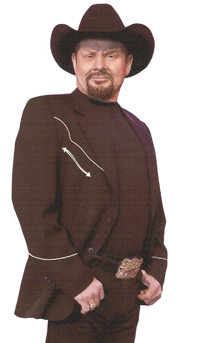 "If I'd done all the things I sing about, I'd be dead." Moe Bandy achieved stardom in the 1970s and 1980s by singing about cheatin' and drinkin' and other hardcore country subjects. His first hit, which charted No. 17 in 1974, was "I Just Started Hatin' Cheatin' Songs Today," followed quickly by "Honky Tonk Amnesia," "It Was Always So Easy (To Find an Unhappy Woman)," and "Don't Anyone Make Love at Home Anymore." In 1975 "Hank Williams Wrote My Life" soared to No. 2. The next year Moe scored No. 11 with "Here I Am Drunk Again." A 1978 duet with Janie Frickie, "It's a Cheating Situation," reached No. 1, and so did a 1979 solo, "I Cheated Me Right Out of You." "She's Not Really Cheatin' (She's Just Getting Even)" reached No. 2 in 1982. Other hard country hits included, "It Took a Lot of Drinkin' (To Get That Woman Over Me)" and "Barroom Roses."
"If I'd done all the things I sing about, I'd be dead." Moe Bandy achieved stardom in the 1970s and 1980s by singing about cheatin' and drinkin' and other hardcore country subjects. His first hit, which charted No. 17 in 1974, was "I Just Started Hatin' Cheatin' Songs Today," followed quickly by "Honky Tonk Amnesia," "It Was Always So Easy (To Find an Unhappy Woman)," and "Don't Anyone Make Love at Home Anymore." In 1975 "Hank Williams Wrote My Life" soared to No. 2. The next year Moe scored No. 11 with "Here I Am Drunk Again." A 1978 duet with Janie Frickie, "It's a Cheating Situation," reached No. 1, and so did a 1979 solo, "I Cheated Me Right Out of You." "She's Not Really Cheatin' (She's Just Getting Even)" reached No. 2 in 1982. Other hard country hits included, "It Took a Lot of Drinkin' (To Get That Woman Over Me)" and "Barroom Roses."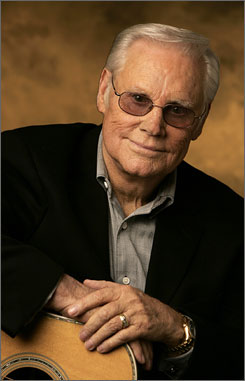 The famed Country artist nicknamed "Ol' Possum" also is known within the industry as the "Rolls Royce of Country Singers." Gary Hartman, author of The History of Texas Music, states that George Jones "is famous for his unique vocal style, which features an emotional depth and resonance rarely matched by other country singers."
The famed Country artist nicknamed "Ol' Possum" also is known within the industry as the "Rolls Royce of Country Singers." Gary Hartman, author of The History of Texas Music, states that George Jones "is famous for his unique vocal style, which features an emotional depth and resonance rarely matched by other country singers."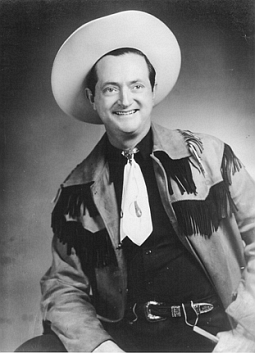 "How would you talk to a woman with a gun?" mused Al Dexter after seeing a gun-toting waitress give chase to her husband's girlfriend, "and I thought, 'lay that pistol down, babe, lay that pistol down.'" With this incident and lyric phrase in mind, songwriter-musician Al Dexter created "Pistol Packin' Mama," one of the biggest honky tonk hits of all time. Dexter already was an experienced performing and recording artist, and "Pistol Packin' Mama" launched a five-year period of phenomenal success for the East Texan.
"How would you talk to a woman with a gun?" mused Al Dexter after seeing a gun-toting waitress give chase to her husband's girlfriend, "and I thought, 'lay that pistol down, babe, lay that pistol down.'" With this incident and lyric phrase in mind, songwriter-musician Al Dexter created "Pistol Packin' Mama," one of the biggest honky tonk hits of all time. Dexter already was an experienced performing and recording artist, and "Pistol Packin' Mama" launched a five-year period of phenomenal success for the East Texan.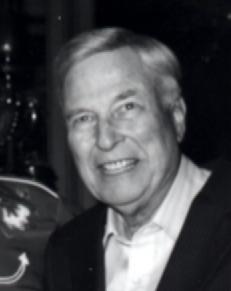 Ray was looking forward to the Texas Country Music Hall of Fame inaugural induction show in August 1998 which would honor his dear friend, Jim Reeves, and had given his blessing for the opening notes of "Welcome to My World" to be used in the logo. However, his attendance was not to be, as he passed away in May, 1998. Winkler, in collaboration with John Hathcock, wrote "Welcome to My World" for Reeves in 1961. Winkler and Hathcock wrote hundreds of songs together, and many have been recorded. But "Welcome to My World" was their masterpiece, a classic that would be recorded by more than 140 artists, and a standard that would provide definition for Jim Reeves.
Ray was looking forward to the Texas Country Music Hall of Fame inaugural induction show in August 1998 which would honor his dear friend, Jim Reeves, and had given his blessing for the opening notes of "Welcome to My World" to be used in the logo. However, his attendance was not to be, as he passed away in May, 1998. Winkler, in collaboration with John Hathcock, wrote "Welcome to My World" for Reeves in 1961. Winkler and Hathcock wrote hundreds of songs together, and many have been recorded. But "Welcome to My World" was their masterpiece, a classic that would be recorded by more than 140 artists, and a standard that would provide definition for Jim Reeves. "Linda Davis is absolutely one of the best singers in the business," says Country superstar Kenny Rogers. "In this business, there are people who can sing and there are singers," explained Rogers. "She is the best."
"Linda Davis is absolutely one of the best singers in the business," says Country superstar Kenny Rogers. "In this business, there are people who can sing and there are singers," explained Rogers. "She is the best."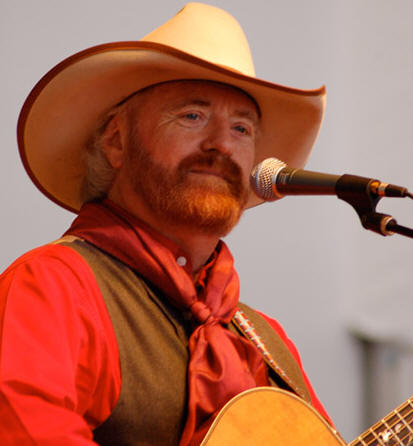 In the same way that Singing Cowboy Tex Ritter emphasized the WESTERN in Country and Western, Michael Martin Murphey - the "Singing Cowboy Poet" - writes and sings about cowboys and gunfighters. Early in his career Murphey was known as the "Cosmic Cowboy," and later he founded the annual WestFest, a three-day festival celebrating Western Americana.
In the same way that Singing Cowboy Tex Ritter emphasized the WESTERN in Country and Western, Michael Martin Murphey - the "Singing Cowboy Poet" - writes and sings about cowboys and gunfighters. Early in his career Murphey was known as the "Cosmic Cowboy," and later he founded the annual WestFest, a three-day festival celebrating Western Americana.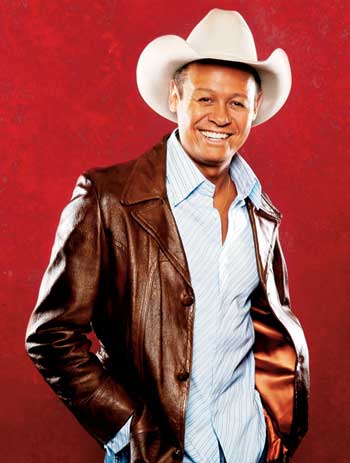 Dynamic. Exciting. Lively. Crowd Pleaser. These words describe the electrifying stage presence of a born entertainer. Neal McCoy entered the world at Jacksonville, Texas, on July 30, 1958. His actual birth name was Hubert Neal McGaughey, Jr. Early in his performing career Neal simplified the spelling of his last name to McGoy (same pronunciation), and there was a later change to McCoy. As a schoolboy, Neal eagerly performed at any opportunity, in school programs and musicals, in church choirs, and Gospel quartets. In addition to Country and Gospel, he absorbed elements of Jazz and Rock.
Dynamic. Exciting. Lively. Crowd Pleaser. These words describe the electrifying stage presence of a born entertainer. Neal McCoy entered the world at Jacksonville, Texas, on July 30, 1958. His actual birth name was Hubert Neal McGaughey, Jr. Early in his performing career Neal simplified the spelling of his last name to McGoy (same pronunciation), and there was a later change to McCoy. As a schoolboy, Neal eagerly performed at any opportunity, in school programs and musicals, in church choirs, and Gospel quartets. In addition to Country and Gospel, he absorbed elements of Jazz and Rock.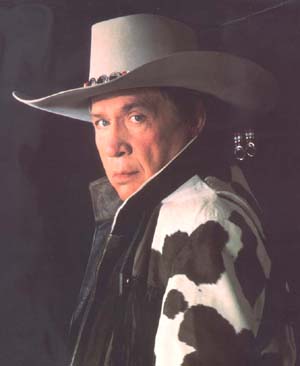 For many fans the principal identity of Buck Owens is the overall-clad hillbilly who co-hosted Hee Haw with Roy Clark. But during the 1960s and 1970s Buck soared to a level of success and influence that has been enjoyed by few other Country stars. Alvis Edgar Owens was born into a family of sharecroppers on August 12, 1929, at Sherman, Texas. Always called "Buck," the towheaded little boy moved with his family to Mesa, Arizona, during the Great Depression. Growing up during hard times, Buck dropped out of school in the ninth grade to work on the farm. But like many other children of the Depression, he was fiercely ambitious.
For many fans the principal identity of Buck Owens is the overall-clad hillbilly who co-hosted Hee Haw with Roy Clark. But during the 1960s and 1970s Buck soared to a level of success and influence that has been enjoyed by few other Country stars. Alvis Edgar Owens was born into a family of sharecroppers on August 12, 1929, at Sherman, Texas. Always called "Buck," the towheaded little boy moved with his family to Mesa, Arizona, during the Great Depression. Growing up during hard times, Buck dropped out of school in the ninth grade to work on the farm. But like many other children of the Depression, he was fiercely ambitious.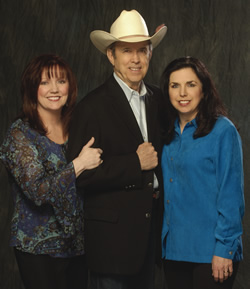 The Whites originated with the musically gifted H.S. "Buck" White. Born in 1930 in Oklahoma, Buck was raised in Wichita Falls. As a boy he learned to play the piano, and later he added the mandolin, guitar, banjo, fiddle and harmonica to his performance repertoire. Forming a small band in high school, Buck increasingly focused on mandolin and piano, while learning from the music of Bob Wills, Bill Monroe, and the Callahan Brothers. With a growing reputation as an instrumentalist, Buck often was called in to man the piano when such stars as Lefty Frizzell and Hank Snow performed in the area. Buck played on a radio station out of Vernon before moving to Abilene.
The Whites originated with the musically gifted H.S. "Buck" White. Born in 1930 in Oklahoma, Buck was raised in Wichita Falls. As a boy he learned to play the piano, and later he added the mandolin, guitar, banjo, fiddle and harmonica to his performance repertoire. Forming a small band in high school, Buck increasingly focused on mandolin and piano, while learning from the music of Bob Wills, Bill Monroe, and the Callahan Brothers. With a growing reputation as an instrumentalist, Buck often was called in to man the piano when such stars as Lefty Frizzell and Hank Snow performed in the area. Buck played on a radio station out of Vernon before moving to Abilene.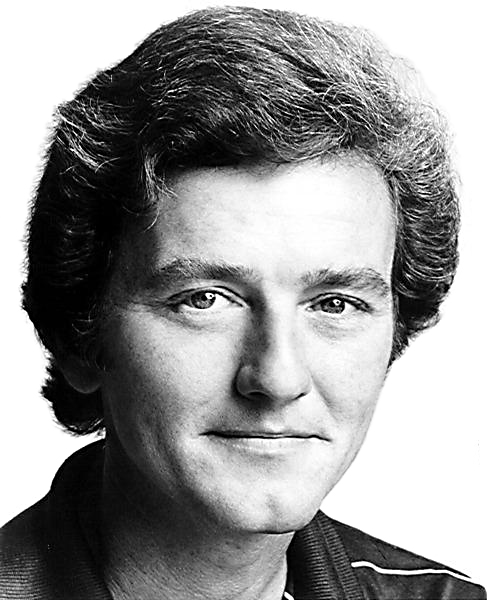 Mickey Newbury was only forty when he was voted into the Nashville Songwriters Hall of Fame. "I learned more about songwriting from Mickey than I did any other single human being," declared Kris Kristofferson, a 2007 inductee of the Texas Country Music Hall of Fame. "To me he was a songbird. He comes out with amazing words and music," added Kristofferson. "He was my hero and still is."
Mickey Newbury was only forty when he was voted into the Nashville Songwriters Hall of Fame. "I learned more about songwriting from Mickey than I did any other single human being," declared Kris Kristofferson, a 2007 inductee of the Texas Country Music Hall of Fame. "To me he was a songbird. He comes out with amazing words and music," added Kristofferson. "He was my hero and still is."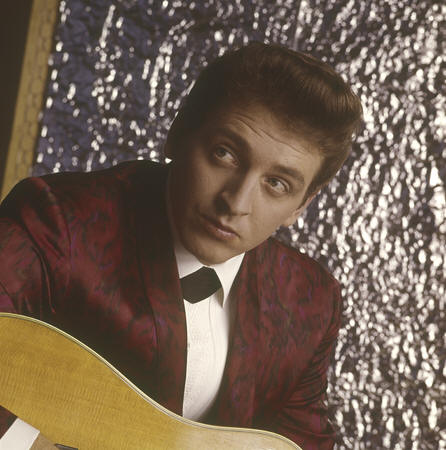 Bobby Glenn Luman was born in Nacogdoches on April 15, 1937. Throughout his boyhood he was fascinated by sports and he excelled as a baseball player. But music also exerted a deep appeal for Bobby Glenn. His father was an accomplished musician who taught Bobby Glenn to play several stringed instruments, including guitar. Impressed by Country stars of the day, he modeled his singing style after his special friend, Lefty Frizzell. The family moved to Kilgore, where Bobby Glenn became a star on the KHS Bulldog baseball team. The young athlete attracted the attention of pro scouts, but he could not resist the pull of music. Attending a country music package show, Bobby Glenn was profoundly affected by the wild performance of young Elvis Presley. Girls in the audience were driven into frenzies by the gyrations and rockabilly sounds of Elvis. "That was the last time I tried to sound like Left Frizzell," recalled Luman.
Bobby Glenn Luman was born in Nacogdoches on April 15, 1937. Throughout his boyhood he was fascinated by sports and he excelled as a baseball player. But music also exerted a deep appeal for Bobby Glenn. His father was an accomplished musician who taught Bobby Glenn to play several stringed instruments, including guitar. Impressed by Country stars of the day, he modeled his singing style after his special friend, Lefty Frizzell. The family moved to Kilgore, where Bobby Glenn became a star on the KHS Bulldog baseball team. The young athlete attracted the attention of pro scouts, but he could not resist the pull of music. Attending a country music package show, Bobby Glenn was profoundly affected by the wild performance of young Elvis Presley. Girls in the audience were driven into frenzies by the gyrations and rockabilly sounds of Elvis. "That was the last time I tried to sound like Left Frizzell," recalled Luman.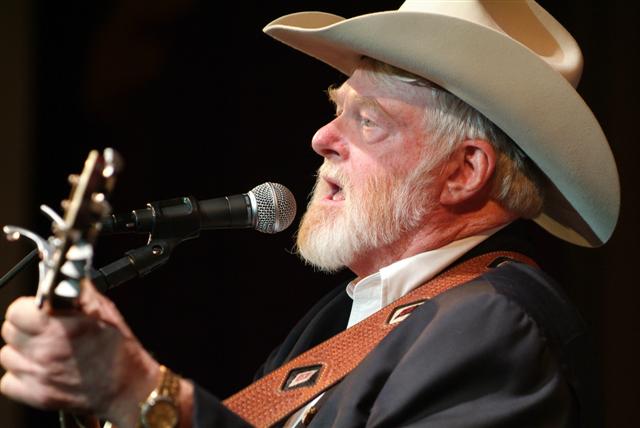 Long known as the Cowboy Poet of Texas, Red became the first cowboy poet to be designated as the state's poet Laureate. Russell Steagall was born on December 22, 1937, in Gainesville, Texas. The family moved to West Texas, settling in the ranching community of Sanford. Fascinated by cowboys and rodeos, Red became a bull rider as a teenager. But when he was 15, he was stricken with polio. To rehabilitate his left arm and hand, Red began playing the guitar and mandolin, quickly demonstrating talent as a performer and composer.
Long known as the Cowboy Poet of Texas, Red became the first cowboy poet to be designated as the state's poet Laureate. Russell Steagall was born on December 22, 1937, in Gainesville, Texas. The family moved to West Texas, settling in the ranching community of Sanford. Fascinated by cowboys and rodeos, Red became a bull rider as a teenager. But when he was 15, he was stricken with polio. To rehabilitate his left arm and hand, Red began playing the guitar and mandolin, quickly demonstrating talent as a performer and composer.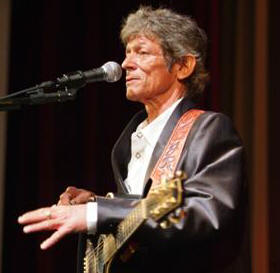 Johnny Rodriguez burst onto the music scene during the 1970s as the first Chicano Country artist and remains the greatest and most memorable Chicano Country singer of all time. Juan Raoul Davis Rodriguez was born on December 10, 1951, in Sabinal, in South Texas. He was the second youngest of ten children. The family had lived in a four-room house, and Johnny was an altar boy. When Johnny was seven, his older brother, Andres, bought him a guitar. Johnny became a fine performer and formed a band when he turned 16. But that same year his father died of cancer and the next year Andres was killed in an auto crash.
Johnny Rodriguez burst onto the music scene during the 1970s as the first Chicano Country artist and remains the greatest and most memorable Chicano Country singer of all time. Juan Raoul Davis Rodriguez was born on December 10, 1951, in Sabinal, in South Texas. He was the second youngest of ten children. The family had lived in a four-room house, and Johnny was an altar boy. When Johnny was seven, his older brother, Andres, bought him a guitar. Johnny became a fine performer and formed a band when he turned 16. But that same year his father died of cancer and the next year Andres was killed in an auto crash.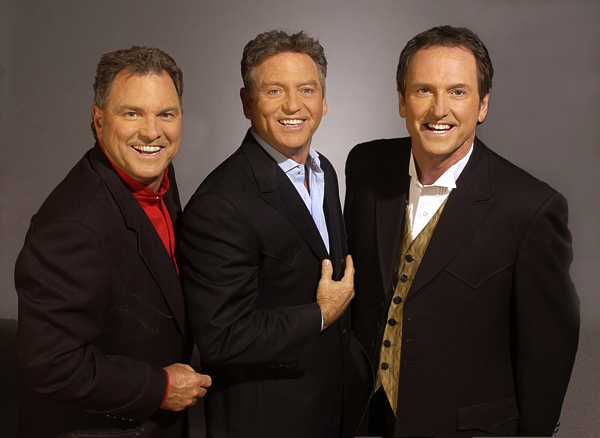 Six year old Larry Wayne Gatlin was scheduled to sing at the 1955 Cavalcade of Talent held in Abilene, Texas. Larry's sister, LaDonna, had heard him singing with their little brothers and she persuaded their mother to put all three brothers onstage. Larry was joined by four-year-old Steve and two-year-old Rudy in the first public performance of the Gatlin Brothers. The next year the Gatlin Brothers won the Cavalcade of Talent--the beginning of a lifetime of triumphs of the musically gifted trio. The Gatlins were West Texans. Larry was born in Seminole on May 2, 1948. Steven Daryl and Rudy Michael both were born in Olney, on April 4, 1951, and August 20, 1952. The brothers grew up with church music, while their father, an oil driller, frequently took their family to gospel "sings." The Gatlins admired the close harmony of the gospel groups. At church events, Larry sang the lead while his brothers harmonized behind him, and in time each brother would take the lead. Throughout boyhood the Gatlin brothers sang at churches and on local radio and television shows.
Six year old Larry Wayne Gatlin was scheduled to sing at the 1955 Cavalcade of Talent held in Abilene, Texas. Larry's sister, LaDonna, had heard him singing with their little brothers and she persuaded their mother to put all three brothers onstage. Larry was joined by four-year-old Steve and two-year-old Rudy in the first public performance of the Gatlin Brothers. The next year the Gatlin Brothers won the Cavalcade of Talent--the beginning of a lifetime of triumphs of the musically gifted trio. The Gatlins were West Texans. Larry was born in Seminole on May 2, 1948. Steven Daryl and Rudy Michael both were born in Olney, on April 4, 1951, and August 20, 1952. The brothers grew up with church music, while their father, an oil driller, frequently took their family to gospel "sings." The Gatlins admired the close harmony of the gospel groups. At church events, Larry sang the lead while his brothers harmonized behind him, and in time each brother would take the lead. Throughout boyhood the Gatlin brothers sang at churches and on local radio and television shows.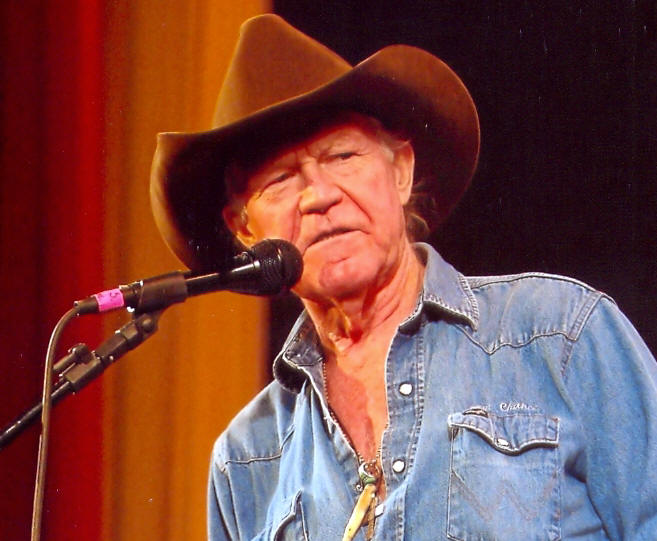 "To me, the song is poetry," reflected songwriter-performer Billy Joe Shaver. "It's the way I describe the world around me, make sense of it. When I lost my fingers, Jesus made it clear to me that writing songs is my mission in life. I've stayed true to that ever since, and I always will. I believe my songs will live long after I'm gone." Shaver's songs have been recorded by an impressive array of artists, including Willie Nelson, Waylon Jennings, Elvis Presley, Patty Loveless, the Oak Ridge Boys, Tom T. Hall, and Bob Dylan. "He's as real a writer as Hemingway," said Kris Kristofferson. "He's timeless."
"To me, the song is poetry," reflected songwriter-performer Billy Joe Shaver. "It's the way I describe the world around me, make sense of it. When I lost my fingers, Jesus made it clear to me that writing songs is my mission in life. I've stayed true to that ever since, and I always will. I believe my songs will live long after I'm gone." Shaver's songs have been recorded by an impressive array of artists, including Willie Nelson, Waylon Jennings, Elvis Presley, Patty Loveless, the Oak Ridge Boys, Tom T. Hall, and Bob Dylan. "He's as real a writer as Hemingway," said Kris Kristofferson. "He's timeless." .jpg) Roger Dean Miller was born in Fort Worth on January 2, 1936. During his boyhood, his father died and the family split up. Roger was sent to the Oklahoma cotton farm of an uncle. Musically gifted, young Roger learned to play the guitar, fiddle and drums. As a teenager he hooked up with various bands and played honky tonks in Oklahoma and Texas. Drafted into the Army, he soon was assigned to a hillbilly band by a Special Forces officer. While in the Army he met Bill Anderson and a brother of performer Jethro Burns. Roger was encouraged to go to Nashville where his career soared.
Roger Dean Miller was born in Fort Worth on January 2, 1936. During his boyhood, his father died and the family split up. Roger was sent to the Oklahoma cotton farm of an uncle. Musically gifted, young Roger learned to play the guitar, fiddle and drums. As a teenager he hooked up with various bands and played honky tonks in Oklahoma and Texas. Drafted into the Army, he soon was assigned to a hillbilly band by a Special Forces officer. While in the Army he met Bill Anderson and a brother of performer Jethro Burns. Roger was encouraged to go to Nashville where his career soared..jpg) Born near Plainview, Texas on August 10, 1928, Jimmy Dean worked on neighboring farms to add a little income to the family purse. His mother taught him to play the piano when he was ten, and the boy soon began learning the accordion, guitar and harmonica. As a teenager, Jimmy joined the Merchant Marines, and following a two-year hitch, he enlisted in the Air Force. He enjoyed entertaining his buddies, and while stationed at Bolling Air Force Base near Washington, D.C., he joined a band, the Tennessee Haymakers. He became a popular attraction at service and civilian clubs, and after his discharge he stayed in the D.C. area, forming another band, the Texas Wildcats.
Born near Plainview, Texas on August 10, 1928, Jimmy Dean worked on neighboring farms to add a little income to the family purse. His mother taught him to play the piano when he was ten, and the boy soon began learning the accordion, guitar and harmonica. As a teenager, Jimmy joined the Merchant Marines, and following a two-year hitch, he enlisted in the Air Force. He enjoyed entertaining his buddies, and while stationed at Bolling Air Force Base near Washington, D.C., he joined a band, the Tennessee Haymakers. He became a popular attraction at service and civilian clubs, and after his discharge he stayed in the D.C. area, forming another band, the Texas Wildcats..jpg) Born in Tyler on May 20, 1926, Johnny and his four brothers were raised in East Texas' Rose City. The five musical brothers - Johnny, Gene, Jerry, Jack and Bill--played a variety of local gigs. Johnny mastered the fiddle, along with the mandolin and banjo, and sometimes he sang. While still a student at Tyler High School, Johnny organized the Rose City Swingsters with two of his brothers and a friend. The Swingsters played in KGKB Radio in Tyler, and in 1943 Johnny went to Shreveport to play over KWKH, accompanying Governor Jimmie Davis with his campaign band. At the end of World War II Johnny joined the U.S. Army. After his discharge he returned to Texas and in 1949, Johnny married Barbara Kemp. The couple has three children, a son and twin daughters, and four grandchildren.
Born in Tyler on May 20, 1926, Johnny and his four brothers were raised in East Texas' Rose City. The five musical brothers - Johnny, Gene, Jerry, Jack and Bill--played a variety of local gigs. Johnny mastered the fiddle, along with the mandolin and banjo, and sometimes he sang. While still a student at Tyler High School, Johnny organized the Rose City Swingsters with two of his brothers and a friend. The Swingsters played in KGKB Radio in Tyler, and in 1943 Johnny went to Shreveport to play over KWKH, accompanying Governor Jimmie Davis with his campaign band. At the end of World War II Johnny joined the U.S. Army. After his discharge he returned to Texas and in 1949, Johnny married Barbara Kemp. The couple has three children, a son and twin daughters, and four grandchildren..jpg) Royce Glenn Sutton was born on September 28, 1937, in Hodge, Louisiana, but the family soon moved to East Texas. Glenn began writing his first songs as a fourth grader while attending school in Carthage. He began high school in Henderson, but graduated after the family moved to Jackson, Mississippi. By this time Glenn had become adept at a number of instruments, including the guitar, mandolin, drums, piano, trumpet, bass, and steel guitar. Selling insurance by day, after dark he played clubs in and around Jackson. Glenn's first recordings were cut in Tyler at Robin Hood Brian's Recording Studio, and they were brought to the attention of Merle Kilgore in Nashville. By 1964 Glenn was sufficiently encouraged to try his luck in Nashville as a songwriter. Almost immediately he scored a hit when Hank Williams, Jr., covered Guess What, That's Right, She's Gone.
Royce Glenn Sutton was born on September 28, 1937, in Hodge, Louisiana, but the family soon moved to East Texas. Glenn began writing his first songs as a fourth grader while attending school in Carthage. He began high school in Henderson, but graduated after the family moved to Jackson, Mississippi. By this time Glenn had become adept at a number of instruments, including the guitar, mandolin, drums, piano, trumpet, bass, and steel guitar. Selling insurance by day, after dark he played clubs in and around Jackson. Glenn's first recordings were cut in Tyler at Robin Hood Brian's Recording Studio, and they were brought to the attention of Merle Kilgore in Nashville. By 1964 Glenn was sufficiently encouraged to try his luck in Nashville as a songwriter. Almost immediately he scored a hit when Hank Williams, Jr., covered Guess What, That's Right, She's Gone..jpg) Scott "Mac" Davis was born in Lubbock on January 21, 1942. Musically inclined, "I was probably making up melodies when I was only five or six years old." Mac sang in the church choir, and he learned to play the blues harp, bongo drums and guitar. Like countless other teenagers during the 1950s, Mac was strongly influenced by Elvis Presley.
Scott "Mac" Davis was born in Lubbock on January 21, 1942. Musically inclined, "I was probably making up melodies when I was only five or six years old." Mac sang in the church choir, and he learned to play the blues harp, bongo drums and guitar. Like countless other teenagers during the 1950s, Mac was strongly influenced by Elvis Presley..jpg) Johnny Lee was born John Lee Ham in Texas City on July 3, 1946. While growing up on a dairy farm near Alta Loma, he organized "Johnny Lee and the Roadrunners." Johnny Lee's musical career took a back seat for four years during the 1960s after he joined the Navy, serving aboard a guided missile cruiser in Vietnamese waters. "I love a good country song," declared singer Johnny Lee, a Texas farm boy during the 1950s, "but I can get sentimental about some of the old fifties stuff."
Johnny Lee was born John Lee Ham in Texas City on July 3, 1946. While growing up on a dairy farm near Alta Loma, he organized "Johnny Lee and the Roadrunners." Johnny Lee's musical career took a back seat for four years during the 1960s after he joined the Navy, serving aboard a guided missile cruiser in Vietnamese waters. "I love a good country song," declared singer Johnny Lee, a Texas farm boy during the 1950s, "but I can get sentimental about some of the old fifties stuff.".jpg) "Hellooo...Baby!" The deep, rich voice that uttered the opening line to Chantilly Lace belonged to Jiles Perry Richardson, Jr., known to his fans as The Big Bopper. But The Big Bopper's meteoric rise to fame was cut short by one of the most stunning tragedies ever to strike the music world.
"Hellooo...Baby!" The deep, rich voice that uttered the opening line to Chantilly Lace belonged to Jiles Perry Richardson, Jr., known to his fans as The Big Bopper. But The Big Bopper's meteoric rise to fame was cut short by one of the most stunning tragedies ever to strike the music world..jpg) Movie Star. Groundbreaking songwriter. Grammy-winning recording artist. Few Texans of any generation have exhibited the multiple talents of Kris Kristofferson.
Movie Star. Groundbreaking songwriter. Grammy-winning recording artist. Few Texans of any generation have exhibited the multiple talents of Kris Kristofferson..jpg) William Orville R.C. Firzzell was born on March 31, 1928, in Corsicana, Texas, the first of eight children. His father, Naaman Orville R.C. Frizzell, was an oil field worker who moved his growing family to El Dorado, Arkansas when his oldest boy, "Sonny," was fourteen. Soon goaded into a schoolyard fight, the new kid beat his opponent with a devastating left hand, and Sonny Frizzell acquired the nickname "Lefty."
William Orville R.C. Firzzell was born on March 31, 1928, in Corsicana, Texas, the first of eight children. His father, Naaman Orville R.C. Frizzell, was an oil field worker who moved his growing family to El Dorado, Arkansas when his oldest boy, "Sonny," was fourteen. Soon goaded into a schoolyard fight, the new kid beat his opponent with a devastating left hand, and Sonny Frizzell acquired the nickname "Lefty.".jpg) "If I wasn't getting paid for this, I'd be doing it anyway," stated singer-songwriter-instrumentalist Johnny Bush. "It's what I do." He began doing it as a boy. Born John Bush Shin, III in Houston on February 17, 1935, he grew up listening to his father and other relatives and friends make music in the Shin home. They sang and played guitars and fiddles, and Johnny avidly listened to country music over the radio. "I would go to the movies on Saturdays and hear Roy Rogers sing," reminisced Johnny, "and I thought, that's me boy."
"If I wasn't getting paid for this, I'd be doing it anyway," stated singer-songwriter-instrumentalist Johnny Bush. "It's what I do." He began doing it as a boy. Born John Bush Shin, III in Houston on February 17, 1935, he grew up listening to his father and other relatives and friends make music in the Shin home. They sang and played guitars and fiddles, and Johnny avidly listened to country music over the radio. "I would go to the movies on Saturdays and hear Roy Rogers sing," reminisced Johnny, "and I thought, that's me boy.".jpg) A high-energy performer nicknamed "The Texas Tornado," Tanya Denise Tucker was blessed with precocious vocal talents as a child. The youngest of three children, she was born on October 10, 1958, in Seminole, Texas. Tanya's parents, Beau and Juanita Tucker, were dogged by poverty. Beau moved the family around as he searched for construction work.
A high-energy performer nicknamed "The Texas Tornado," Tanya Denise Tucker was blessed with precocious vocal talents as a child. The youngest of three children, she was born on October 10, 1958, in Seminole, Texas. Tanya's parents, Beau and Juanita Tucker, were dogged by poverty. Beau moved the family around as he searched for construction work..jpg) "The world stops spinning when he sings," declared Robert K. Oermann, dean of Country Music critics. "In his voice is all the ache of existence." The expressive tenor voice of Gene Watson has generated admiration from such stars as George Strait, Marty Robbins, George Jones, and Randy Travis. He is widely regarded as a singer's singer.
"The world stops spinning when he sings," declared Robert K. Oermann, dean of Country Music critics. "In his voice is all the ache of existence." The expressive tenor voice of Gene Watson has generated admiration from such stars as George Strait, Marty Robbins, George Jones, and Randy Travis. He is widely regarded as a singer's singer..jpg) When Ann Stuckey took charge of her husband's fan club, she happily distributed badges which declared that the wearer was "Stuck on Stuckey." Indeed, fans were "Stuck on Stuckey" because of Nat's enormous versatility. During a career which spanned more than three decades, Nat Stuckey was a singer, songwriter, deejay, record producer, music publisher, owner of a booking agency and the voice of hundreds of commercials.
When Ann Stuckey took charge of her husband's fan club, she happily distributed badges which declared that the wearer was "Stuck on Stuckey." Indeed, fans were "Stuck on Stuckey" because of Nat's enormous versatility. During a career which spanned more than three decades, Nat Stuckey was a singer, songwriter, deejay, record producer, music publisher, owner of a booking agency and the voice of hundreds of commercials..jpg) From 1952 through 1982 the velvet voice of Ray Price recorded more than eighty hits that soared into the Country Music Top Forty, along with numerous crossover hits. The memorable artistry of Price has included notable innovations, and when he was voted into the Country Music Hall of Fame in 1996, there was widespread feeling that the honor was long overdue.
From 1952 through 1982 the velvet voice of Ray Price recorded more than eighty hits that soared into the Country Music Top Forty, along with numerous crossover hits. The memorable artistry of Price has included notable innovations, and when he was voted into the Country Music Hall of Fame in 1996, there was widespread feeling that the honor was long overdue..jpg) In 1942, thirteen-year-old farmboy Billy Walker picked more than 320 pounds of cotton in one grueling day. Rewarded by his father with a quarter, Billy treated himself to a Gene Autry movie, Cowboy Serenade. "That movie hooked me on show business," reminisced Billy half a century later. "That's where I wanted to be."
In 1942, thirteen-year-old farmboy Billy Walker picked more than 320 pounds of cotton in one grueling day. Rewarded by his father with a quarter, Billy treated himself to a Gene Autry movie, Cowboy Serenade. "That movie hooked me on show business," reminisced Billy half a century later. "That's where I wanted to be.".jpg) "When you see me fall asleep, say amen but don't you weep. I've got so many million years that I can't count them." This expression of deep religious belief came from an East Texas preacher's son who, as a Hollywood performer, strayed far from his boyhood faith, then returned. Carl Stuart Hamblen was born at Kellyville, west of Jefferson, Texas, on October 20, 1908. His father was an itinerant preacher, and Stuart learned to love outdoor life while traveling with him. Enrolling at a Methodist institution in Abilene, McMurry College, Stuart soon became a singing cowboy on KAYO Radio in Abilene. Three years later, in 1929 he won a talent contest in Dallas.
"When you see me fall asleep, say amen but don't you weep. I've got so many million years that I can't count them." This expression of deep religious belief came from an East Texas preacher's son who, as a Hollywood performer, strayed far from his boyhood faith, then returned. Carl Stuart Hamblen was born at Kellyville, west of Jefferson, Texas, on October 20, 1908. His father was an itinerant preacher, and Stuart learned to love outdoor life while traveling with him. Enrolling at a Methodist institution in Abilene, McMurry College, Stuart soon became a singing cowboy on KAYO Radio in Abilene. Three years later, in 1929 he won a talent contest in Dallas..jpg) During the 1940s Dale Evans, a beautiful and talented singer-actress from Texas, established herself as Hollywood's most renowned Western leading lady. Co-starring opposite Roy Rogers, the phenomenally popular "King of the Cowboy," Dale earned international fame as the "Queen of the West." She was born Frances Octavia Smith in Uvalde, Texas, on October 31, 1912. Her father was a cotton farmer, and she also spent considerable time at the rural home of her grandparents at Italy, south of Fort Worth. When Frances was a child, she dreamed of marrying Western movie star Tom Mix. "We would have six children together," she reminisced, "then gallop our horses through the sagebrush..." She had the script right, but she would have to cast a different cowboy star as her leading man.
During the 1940s Dale Evans, a beautiful and talented singer-actress from Texas, established herself as Hollywood's most renowned Western leading lady. Co-starring opposite Roy Rogers, the phenomenally popular "King of the Cowboy," Dale earned international fame as the "Queen of the West." She was born Frances Octavia Smith in Uvalde, Texas, on October 31, 1912. Her father was a cotton farmer, and she also spent considerable time at the rural home of her grandparents at Italy, south of Fort Worth. When Frances was a child, she dreamed of marrying Western movie star Tom Mix. "We would have six children together," she reminisced, "then gallop our horses through the sagebrush..." She had the script right, but she would have to cast a different cowboy star as her leading man..jpg) During his long and varied career, Charlie Walker has been a recording star, noted deejay, championship golfer, golfing broadcaster, and Las Vegas emcee. As a young serviceman, Charlie even introduced Country Music to Japan. Charlie Walker's country roots are authentic. Born on November 2, 1926, he was brought up on a Collin County cotton farm near Nevada, north of Dallas. Encouraged by his father to pursue a musical career, Charlie sang and played guitar. As a teenager he began working with Bill Boyd and His Cowboy Ramblers. Then, in 1943, he took a deejay job with KIOX Radio in Bay City.
During his long and varied career, Charlie Walker has been a recording star, noted deejay, championship golfer, golfing broadcaster, and Las Vegas emcee. As a young serviceman, Charlie even introduced Country Music to Japan. Charlie Walker's country roots are authentic. Born on November 2, 1926, he was brought up on a Collin County cotton farm near Nevada, north of Dallas. Encouraged by his father to pursue a musical career, Charlie sang and played guitar. As a teenager he began working with Bill Boyd and His Cowboy Ramblers. Then, in 1943, he took a deejay job with KIOX Radio in Bay City..jpg) "The Texas Playboys are on the air!" A generation of Country Music fans welcomed this radio announcement into their homes, knowing that soon they would hear such standards as "San Antonio Rose" or "Faded Love" or "Bubbles In My Beer." And if they were able to see the Texas Playboys in person, they could scarcely keep their eyes off the energetic band leader. Wearing a big white hat and chomping on a cigar, fiddle-playing Bob Wills strutted in front of his band, grinning and shouting, "Ah, Ha!" and pointing to musicians for their instrumental breaks. Dominating every performance, Bob Wills proved over and over that he was the "King of Western Swing."
"The Texas Playboys are on the air!" A generation of Country Music fans welcomed this radio announcement into their homes, knowing that soon they would hear such standards as "San Antonio Rose" or "Faded Love" or "Bubbles In My Beer." And if they were able to see the Texas Playboys in person, they could scarcely keep their eyes off the energetic band leader. Wearing a big white hat and chomping on a cigar, fiddle-playing Bob Wills strutted in front of his band, grinning and shouting, "Ah, Ha!" and pointing to musicians for their instrumental breaks. Dominating every performance, Bob Wills proved over and over that he was the "King of Western Swing.".jpg) Ernest Dale Tubb was born in 1914 on a farm in Ellis County, Texas. Captivated by the recordings of Jimmie Rodgers, he learned to play guitar, met Jimmie's widow, and yodeled and sang like the "Singing Brakeman." But the Jimmie Rodgers style did not suit ET, and when he had his tonsils removed in 1939 he could no longer yodel. As his voice changed, he developed a nasal, twangy singing style that would be distinctively Ernest Tubb. By 1940 ET's personal appearances were increasingly popular, he had a radio show on a Fort Worth station, and he was recording for Decca.
Ernest Dale Tubb was born in 1914 on a farm in Ellis County, Texas. Captivated by the recordings of Jimmie Rodgers, he learned to play guitar, met Jimmie's widow, and yodeled and sang like the "Singing Brakeman." But the Jimmie Rodgers style did not suit ET, and when he had his tonsils removed in 1939 he could no longer yodel. As his voice changed, he developed a nasal, twangy singing style that would be distinctively Ernest Tubb. By 1940 ET's personal appearances were increasingly popular, he had a radio show on a Fort Worth station, and he was recording for Decca..jpg) Hank Thompson was born in 1925 beside the Brazos River in Waco. He grew up listening to the Grand Ole Opry and to country artists on 78 records. As a boy he won talent contests with his harmonica. But after watching a Gene Autry movie, he yearned to play the guitar. His parents bought a second-hand guitar for four dollars as a Christmas present.
Hank Thompson was born in 1925 beside the Brazos River in Waco. He grew up listening to the Grand Ole Opry and to country artists on 78 records. As a boy he won talent contests with his harmonica. But after watching a Gene Autry movie, he yearned to play the guitar. His parents bought a second-hand guitar for four dollars as a Christmas present..jpg) "My music ain't no Nashville sound. It's my kind of country. It's not Western. It's Waylon." Waylon has sold more than 40 million records worldwide. His powerful voice and personality have put a strong stamp on Country music, which owes much of its broad appeal and rugged individualism to the artist often called "Hoss." Throughout the highs and lows of a long career, Waylon has remained true to himself and his musical vision.
"My music ain't no Nashville sound. It's my kind of country. It's not Western. It's Waylon." Waylon has sold more than 40 million records worldwide. His powerful voice and personality have put a strong stamp on Country music, which owes much of its broad appeal and rugged individualism to the artist often called "Hoss." Throughout the highs and lows of a long career, Waylon has remained true to himself and his musical vision..jpg) Though born in rural East Texas, and though his early musical influences were rural and southern rather than purely western, Woodward Maurice "Tex" Ritter was identified early in his career with the Texas cowboy image. That is not, however, how he started out. Ritter's skills as a public speaker and his intellect first became apparent when he attended school in Nederland, where the Ritter family had moved. Though he loved cowboy songs, he decided on a law career and in 1922 began attending The University of Texas at Austin. Active in music and theater there, he soon found two professors at The University doing a serious study of cowboy songs, and learned much from them.
Though born in rural East Texas, and though his early musical influences were rural and southern rather than purely western, Woodward Maurice "Tex" Ritter was identified early in his career with the Texas cowboy image. That is not, however, how he started out. Ritter's skills as a public speaker and his intellect first became apparent when he attended school in Nederland, where the Ritter family had moved. Though he loved cowboy songs, he decided on a law career and in 1922 began attending The University of Texas at Austin. Active in music and theater there, he soon found two professors at The University doing a serious study of cowboy songs, and learned much from them..jpg) James Travis Reeves was born in Galloway, Texas. His father died within a year of his birth, and he was raised, along with five other children, by his mother, Beulah. Jim Reeves, not surprisingly, was an early hero, but baseball became his obsession. A baseball scholarship took him to The University of Texas at Austin in 1942, but he quit to work the shipyards of Houston, then took to the minor leagues. He stayed there until he was injured. In 1947 he married Mary White, who would play an important role in his future musical career.
James Travis Reeves was born in Galloway, Texas. His father died within a year of his birth, and he was raised, along with five other children, by his mother, Beulah. Jim Reeves, not surprisingly, was an early hero, but baseball became his obsession. A baseball scholarship took him to The University of Texas at Austin in 1942, but he quit to work the shipyards of Houston, then took to the minor leagues. He stayed there until he was injured. In 1947 he married Mary White, who would play an important role in his future musical career.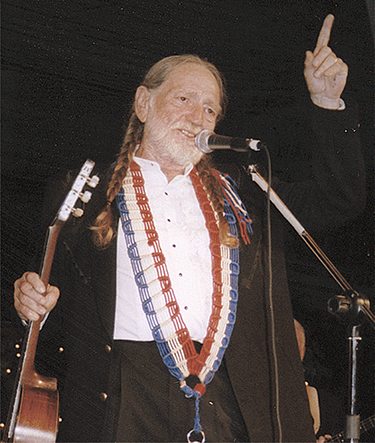 Few country music stars have engendered as much good will as Willie Nelson, despite his label as one of the original Outlaws. It is also safe to say he is one of the most durable artists and one-of-a-kind personalities to ever come rolling down the country music turnpike.
Few country music stars have engendered as much good will as Willie Nelson, despite his label as one of the original Outlaws. It is also safe to say he is one of the most durable artists and one-of-a-kind personalities to ever come rolling down the country music turnpike.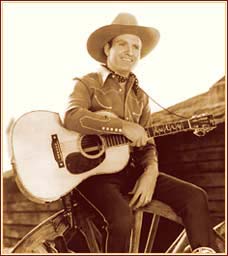 Texas-born Gene Autry has sold more than 65 million records with the 635 recordings he made in his career. Among them was 1931's "That Silver Haired Daddy of Mine" which was the first gold record in history. He was born September 29, 1907 on a tenant farm near Tioga, Texas. Early in his life, the Autrys moved from northeast Texas to Oklahoma. His father ran a ranch near Achille, Oklahoma, and Autry often drove cattle to the railroad station for shipment.
Texas-born Gene Autry has sold more than 65 million records with the 635 recordings he made in his career. Among them was 1931's "That Silver Haired Daddy of Mine" which was the first gold record in history. He was born September 29, 1907 on a tenant farm near Tioga, Texas. Early in his life, the Autrys moved from northeast Texas to Oklahoma. His father ran a ranch near Achille, Oklahoma, and Autry often drove cattle to the railroad station for shipment..jpg) It was master songwriter Harlan Howard who described Cindy Walker as the "greatest living songwriter of Country music." This was no idle flattery. Cindy Walker has, for more than 50 years, been a writer whose songs not just country artists want to record. By the time she was 16, Walker was dancing at Billy Rose's Casa De Manana in Fort Worth. She had begun writing and she wrote "Casa De Manana" as the theme for the show. It was then played by celebrated band leader Paul Whitman on a nationwide radio show.
It was master songwriter Harlan Howard who described Cindy Walker as the "greatest living songwriter of Country music." This was no idle flattery. Cindy Walker has, for more than 50 years, been a writer whose songs not just country artists want to record. By the time she was 16, Walker was dancing at Billy Rose's Casa De Manana in Fort Worth. She had begun writing and she wrote "Casa De Manana" as the theme for the show. It was then played by celebrated band leader Paul Whitman on a nationwide radio show.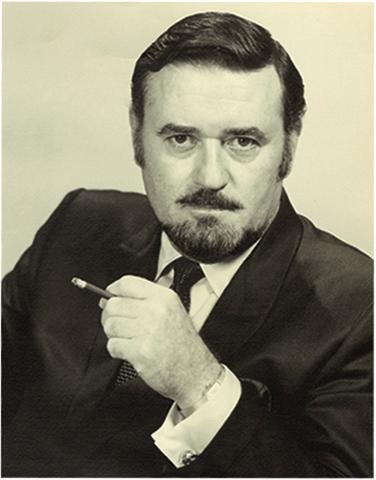 Allison is well-known in Nashville for his multi-faceted career as DJ, producer, and television show host. Born in McKinney, Texas. Allison worked as a commercial artist before embarking on a career in the entertainment industry, first as a disc jockey on a Paris, Texas radio station. In 1945, after a few years on radio, Allison took a job as the emcee for the North American tour of country music singing star Tex Ritter. While working on tour, he offered Ritter a song he had written called When You Leave, Don't Slam the Door, which the singer turned into a No. 1 hit on the country music charts. This success ultimately led to Allison moving to a radio station in Nashville, Tennessee where he remained until accepting an offer from a station in Pasadena, California.
Allison is well-known in Nashville for his multi-faceted career as DJ, producer, and television show host. Born in McKinney, Texas. Allison worked as a commercial artist before embarking on a career in the entertainment industry, first as a disc jockey on a Paris, Texas radio station. In 1945, after a few years on radio, Allison took a job as the emcee for the North American tour of country music singing star Tex Ritter. While working on tour, he offered Ritter a song he had written called When You Leave, Don't Slam the Door, which the singer turned into a No. 1 hit on the country music charts. This success ultimately led to Allison moving to a radio station in Nashville, Tennessee where he remained until accepting an offer from a station in Pasadena, California.